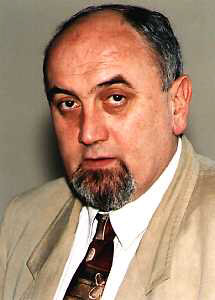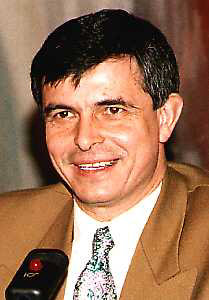 Infrastructure investments - the economy driving force Infrastructure investments - the economy driving force
Infrastructure projects are considered as one of the strategic priorities of the economic program of the Bulgarian cabinet. Bulgaria enjoys strategic geographic location, at the traditional route from the Middle East to Central and Western Europe. Three pan-European transport corridors cross the Bulgarian territory, bordering Danube river, with an access to the Black Sea and to the Mediterranean sea through the Bosphorus. But there is no doubt that a well developed infrastructure is needed to benefit from that God-blessed geographic location.

"We really consider investing into serious infrastructure projects as one of the driving forces for further economic growth", Minister of Transport Vilhelm Kraus says. "Besides, developing and implementing infrastructure projects means new employment, development of production of construction materials. During my recent visit to USA in a delegation accompanying the Bulgarian President General Electric and General Motors showed interest in investing and restructuring the Bulgarian rail-roads – mainly by a renovation of the locomotive machines and the rail-road wagons. And we really approve and underline the importance of a program for investing in infrastructure projects like the development of seaports, airports, rail-road and road networks".
Bulgaria has traditions in shipbuilding and Varna
and Bourgas ports are striving to achieve a major
role as transshipment centers for the Black Sea
region. Svilen Spasov, Chairman of the Board of
Directors of Varna Shipyard, shares: "Varna
Shipyard is the leader in the Black Sea area. We
deliver as much ships as the other Black Sea countries
do all together on an annual basis. I don’t
mean that the others are bad but that we do not
have a real competition. Traditionally we have a
very good market place in the field of bulk-carriers
and in the multi-purpose ships. The big containers
are going to the South China Sea, to the Caribbean
Sea, to the Mediterranean Sea, to the Baltic Sea;
and then the small ships are serving the area. Of
course, we need improvement. We try to do this with
an extension of our portfolio. This means that we
need to have at least ten types of ships, which
you are ready to design and build – mostly
bulk-carriers, tankers and multi-purpose ships with
different tonnage. And with this portfolio we are
trying to find the best time for the market. Probably
the time is for tankers and we are doing our best
to go there. Because for bulk-carriers the time
is very bad at the moment". |
Investments are badly needed in many of the companies offered for privatization.
"I think, the Balkan Airline needs investments only for creating its own plane park. This is the only problem of the company. For example, our planes TUPOLEV are more than 20 years old. Besides, they were built during a period when a ton of jet fuel cost the State 10 $. A plane like that, compared to a Boeing, consumes three times more fuel per hour, with the same seats capacity", Philip Mustakov , President of Balkan Airlines - the national career to be privatized - explains.

As a conclusion Stefan Sofianski , the Mayor of the Bulgarian capital – Sofia, says : "The main city infrastructure projects might be interesting for foreign investors - city transport, water supply system and district heating. We succeeded in launching our subway, which is the 107th in world. So this year Sofia already has its own subway with its first 5 stations; and we need another 100 million $ to make the subway more effective. We have started with the construction but there is a lack of financing. The second large interest is in the water supply system. We are going to give a concession now; we are working very hard and we have a contract with the EBRD . We will open a tender-procedure for giving the concession to companies. The third field, which is going to become very interesting, is the district heating. We have one of the largest systems of district heating in the whole Europe. There is a large field of opportunities for investing in coal generation systems; to use the capacity to produce power and also to optimize the system. Furthermore there is a lack of any kind of buildings like business centers, new hotels". |

